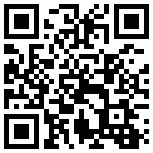
 QR Code
QR Code

Militarism, Democracy, and Diplomacy
Islam Times , 23 Jan 2010 10:40
Militarism and diplomacy are the two principal policies that America forms in the Middle East while democracy and diplomacy are two principal policies that the resistance groups form in the region.
By: Sa’dallah Zara’i
These two currents are in unison when in comes to diplomacy; but have differences of opinions when it comes to how diplomacy should be formed. One refers to military strength – the Iron Fist – and the other the general public; to the votes of citizens. Bother currents have had successes and failures in the Middle East which will be the subject of this article.
Militarism is the method used by America and Israel. According to official reports, the military budget of the Zionist regime for 2010 is more than 15 billion Dollars which is about one-fourth of their entire budget. This is a thirty percent increase from the previous year. This figure puts the Israeli army at the 15th spot on the list of the most powerful armies of the world. This regime was at the 17th spot three years ago. But, if the military strength of this country is compared with the 27,000 square Kilometers it would become the strongest military power in the world. Does this show a high level of fear? Does this mean that Israel is preparing itself not to accept future conditions? Is this the sign of a new war?
America will spend more on the military this year, the second year of Barack Obama’s presidency, than it has in the past. This is in complete opposition to the slogans of the Democratic Party and shows that militarism will protect its position in the Obama Government. During the presidential campaign, Obama repeatedly expressed is opposition to the wars in Iraq and Afghanistan. Now, he is prepared to send 30,000 new troops to Afghanistan at the beginning of summer. This means that at that time the number of western soldiers in Afghanistan will number about 100,000 who will be supported by about 50,000 contracted soldiers in companies such as Blackwater. There are various opinions as to what the meaning of this increase of soldiers actually is.
Saudi Arabia has changed the ports of its country into military outposts and is hording billions of dollars of weapons. Recently they signed a 20 billion dollar contract with a weapons distributer as well. They are also discussing the purchase of weapons from eastern countries. The Saudi Arabian government did not hesitate at all to use its weapons against the people of Saadah in Northern Yemen. Their success in this matter and their main purposes are up for dispute.
The western bloc and its allies in the region are using diplomacy as well as militarism. They are very active in this route. Throughout the year there has not been a week where an important international meeting did not take place. This bloc will soon have a meeting in London to discuss Yemen and Afghanistan with the announced purpose of quelling Islamists.
Many western politicians are traveling to the region and many leaders of the region are traveling to the west. It can be said that the west is using militarism and diplomacy to cover up its mistakes in the region and to destroy the new energetic enemy that it has found.
On the other side, the resistance bloc, despite the fact that it is made up of various elements, are not unaware of spiritual and material strengths, but relies the most upon the power of the people. The results of elections in the Middle East show that this is the most important area of power. Close to five years ago an election in Afghanistan was held while the country was under the occupation of western forces. About 75 percent of the seats in the congress and 55 percent of the seats in the senate were given to the ‘Mujahidin.’ The Mujahidin are allies with the resistance bloc in Afghanistan. The elections in Iraq four years ago also saw Islamists win putting the government, military, economy, and intelligence agencies under their command. The elections in Lebanon showed that the resistance candidates overwhelmingly won; but due to the problems with their constitution this majority did not create a majority in the parliament. The elections in Palestine four years ago showed that 75 percent of the parliament was given to resistance candidates and the Islamist government under Ismail Haniyeh, a religious scholar from Gaza, was formed. Parliamentary elections in Iran resulted in 62 percent of resistance minded individuals being elected to power. Outside of the Middle East, people are turning towards candidates who are revolutionary. The predictions in the upcoming Palestinian and Iraqi elections show are definitive victory for the resistance.
Diplomacy is another tactic used by the resistance groups. It seems as if this bloc has not matured enough in this field. Therefore, opportunities have been missed. Today, the resistance bloc in the Middle East and outside of the Middle East includes important countries who have affects on international politics. These countries have connected the eastern sections of the Middle East to the western sections. Turkey and Sudan, who are at the two borders, are Islamist governments. These two countries have links to Africa and Europe. This is why the resistance bloc has important roots in three continents: Africa, Asia, and Europe.
If the resistance bloc was able to improve their diplomatic strategies there would be huge advances made in this region.
Story Code: 19103